
Some truths about Hakka
01
Why are they called Hakka?
Source : History teacher Wang Hanzhou
Hakkas refer to foreigners, people from other parts of the country, who come here to settle down as guests. They have their own language called Hakka language. The term Hakka actually has two meanings:
First, Hakka people were not southerners. Actually they came from the north.
Second: they came to the south to stay temporarily, once the time is right, they were to return to the northern homeland. That is the reason why there is a word "guest". The name Hakka originated from the Guest System in the Eastern Jin and Southern and Northern Dynasties, and the customer system in the Tang and Song dynasties. In the historical materials "The Book of the Southern Qi Dynasty‧Zhou County Records:" , South Yanzhou, the town of Guangling. When the people suffered from the fire of wars, they moved into the country. Yuan Emperor Daxing fourth year, according to the emperor’s imperial edict , those coming from exile, they were given the name of the guest. In the Song Dynasty, the Guangdong government conferred household registration. According to the time sequence when the Han people entered Guangdong, the Guangfu and Fulao people were the first to enter and were classified as "main nationality", while the Hakka people were the second to enter and were classified as "Hakka nationality" (similar to today's temporary residence permit). After a long time, the Hakka people were called Hakka.
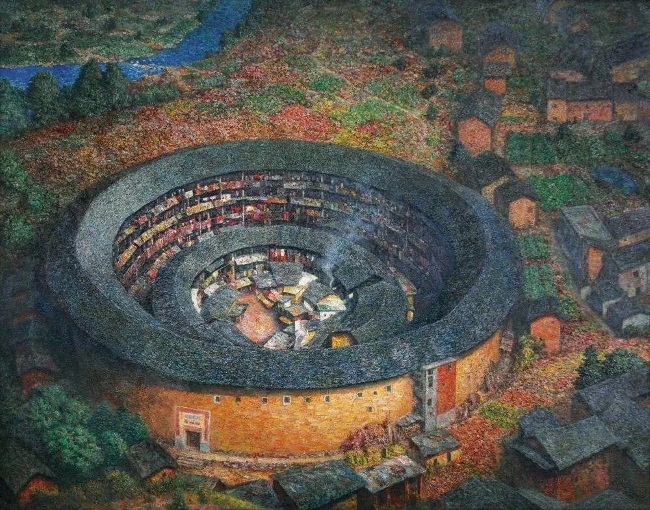
Oil Painting Hakka Soul
02
Where do Hakka people come from?
Answer: The Yellow River Basin.
Specifically, they are mainly from Shanxi, Henan, Shandong, Shaanxi and other provinces located in the Yellow River basin.
Historically, the Hakka people firstly moved to Anhui, Jiangsu, Jiangxi and Zhejiang, and then continue to migrate to Fujian, Guangdong and Guangxi provinces.
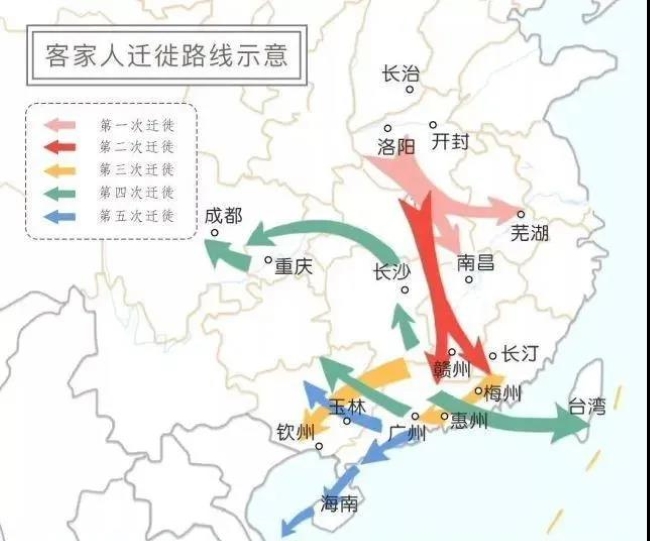
In 2003, anthropologist Li Hui of Fudan University together with some others studied the DNA of Hakka people in Changting, Fujian province and found that:
"80.2 percent of Hakka's paternal ancestors are northern Han Chinese."
Zheng Lianbin and some others from the College of Life Sciences of Tianjin Normal University also analyzed and studied the physical reports of 1354 Hakka men and women from Guangdong and Jiangxi provinces, and found that:
"The physical characteristics of these Hakka people are close to those of Northern Asian groups in China, that is to say, their ancestors are mainly Han people in central China. This is consistent with the historical record."
03
Why did the Hakka people move south?
The ancestors of the Hakka people enjoyed their "good life" in the Central Plains. Why did they move south?
[Note: "There were five major southward migrations" doesn’t mean "there were ONLY five southward migrations". The truth is , there were many, both large and small.]
There are at least three reasons for migration :
First: change of imperial power, change of dynasties, escape from the war fire, or once served as an official in the former dynasty, fearing being revenged after dynasty changed...
Second: peasant uprising. In ancient times peasant uprisings came in waves of peasant armies and official armies, all of them demanded money and threatened the life. Since they could not afford to provoke them, they made the choice to run away from them.
Third: nomads went south. Han farmers in central China could not afford to provoke them, so they had no other choice but to hide. Basically, as the Chinese proverb saying : the best plan of 36 plans is to run.
04
Why didn't the Hakka people go back to the north?
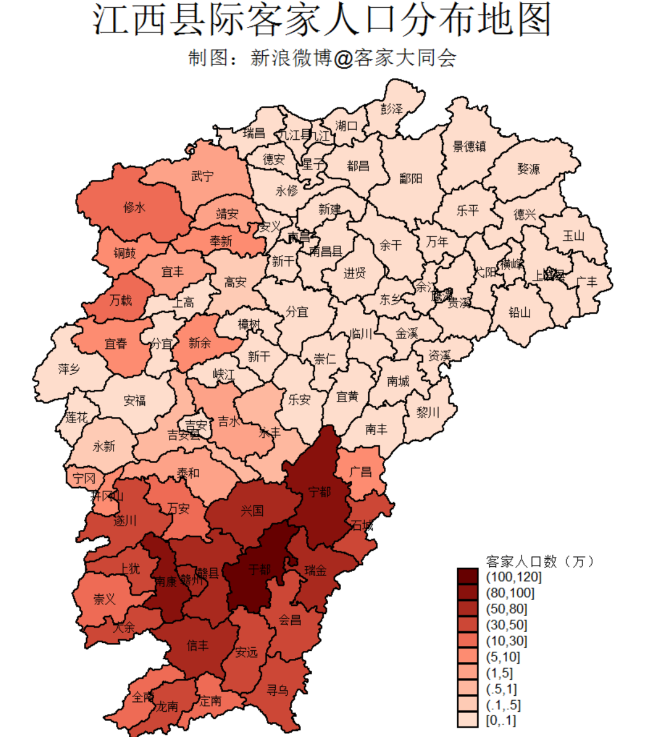
There are at least three answers:
First: No more home even they chose to return.
Second, dynastic changes which can not be appeased in a short period of time, but often it took decades or even hundreds of years.
Third: The Hakka cultivated land in the south, they had children, established economic relations in the south, and acquired assets, which they could not easily abandon.
For example: Xiao Zhang went to the north to make a living. He planned to return home again after he found the wealth. But the fact is , Xiao Zhang not only succeed in his career in Beijing , he also bought a house, built a family, had a successful career and a good relationship network. As a result, he could never go back again .
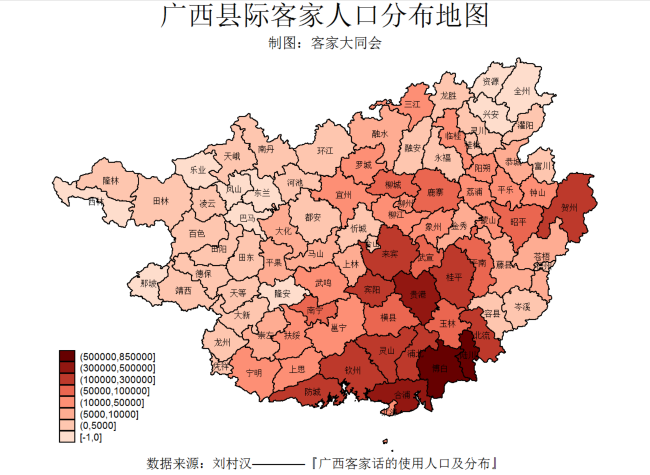
Distribution map of Hakka people in Guangxi
05
Which historical celebrities are Hakka?
Hong Xiuquan, Huang Zunxian, Liao Zhongkai
Ye Jianying, Ye Ting, Xue Yue
Xie Tan Yuan, Lee Kuan Yew, Chu Teh
Guo Moruo, Zhang Fakui, Yang Chengwu
Liu Yongfu, Chen Mingshu, Shi Dakai
Yang xiu-qing... , etc.
All Hakka people.
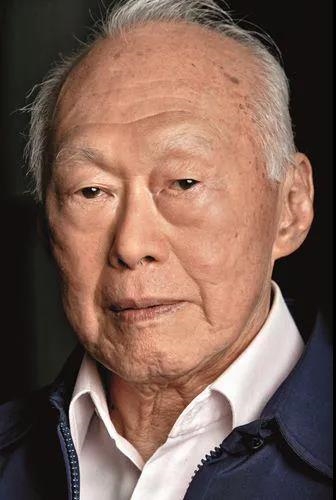
Lee Kuan Yew is also a Hakka from Meizhou, Guangdong province
06
Which province has the largest number of Hakka people?
There are more than 80 million Hakka people in the world. Among them, the Hakka in Guangdong province has the largest number. There are about 26 million Hakkas.
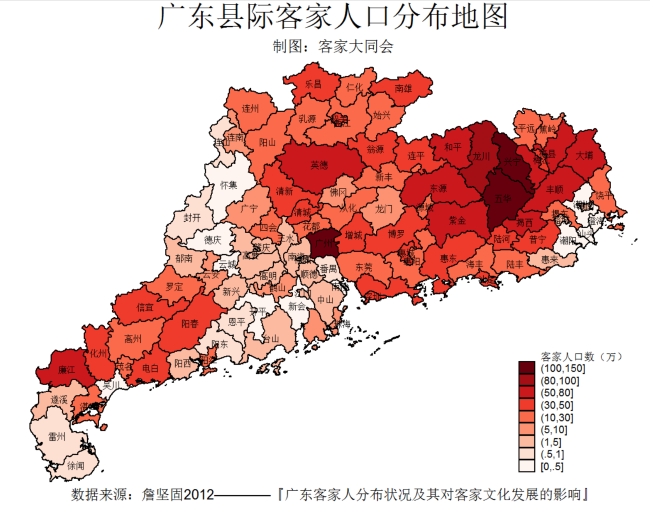
07
Hakka in Taiwan
The Hakka people in Taiwan migrated from the mountainous areas of northern Guangdong and Fujian in the late Ming and Qing dynasties.
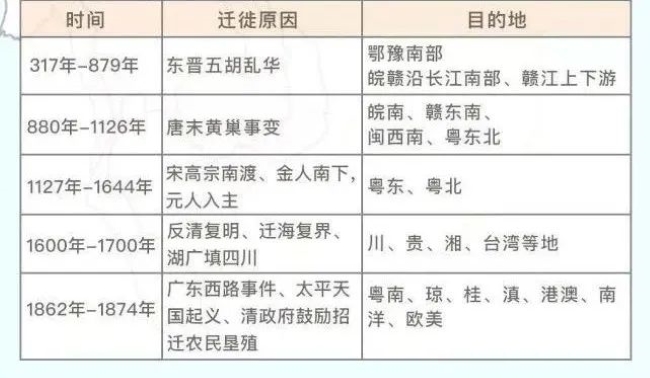
To be more specific, Hakka people in Taiwan mainly come from the following places:
From Guangdong: Meixian, Jiaoling, Xingning, Wuhua, Pingyuan, Dapu, Fengshun, Raoping, Jiexi, Lufeng, Haifeng, etc.
From Fujian: Changting, Shanghang, Wuping, Liancheng, Yongding, Nanjing, Pinghe, Zhao 'an, Yunxiao, and other places.
About 14% of Taiwan's population, or more than 3 million, are Hakka.
That's why today Taiwan's subway, MRT (train) stations are usually announced in four languages: Hakka, Hokkien, Mandarin and English.
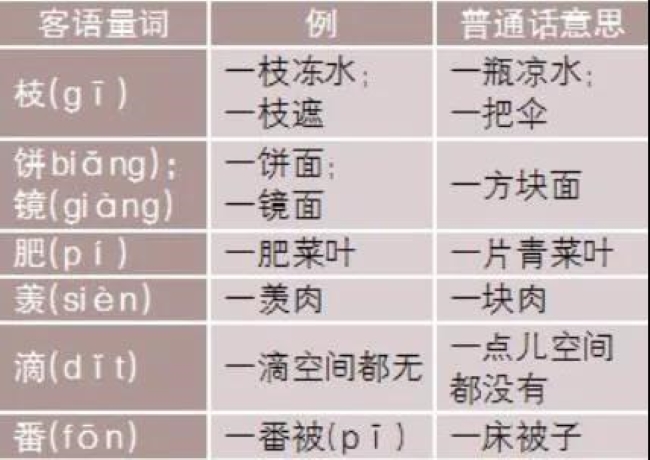
To be simple , there are three basic points:
First: Hakka dialect came from the ancient Central Plains.
Second: Hakka dialect has been lost in the Central Plains today.
Third. Scholars believe that:
1. Hakka language is the dialect of Sizhou and Yuzhou in ancient times, that is to say, it is roughly located in the junction of Henan, Hebei, Shanxi and Shaanxi today.
2. The Hakka dialect is closest to the mandarin of the Tang Dynasty.
08
What was the relationship between the Taiping Heavenly Kingdom and the Hakka?
In those days, many Hakka people immigrated to Guiping, Guangxi. These Hakka people were outsiders and had no land, so most of them did part-time jobs, such as burning charcoal up the mountain, digging mines down the pit and so on.
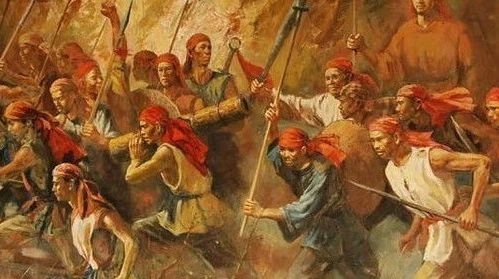
A few Hakka people have managed to reclaim wasteland in Guiping, Guangxi, but the locals claimed it as theirs. There were all kinds of disputes, leading to the "Local and Hakka Fighting ", that is, local people and Hakka fought with weapons . The Hakka people were marginalized and their living conditions were poor. At this time, Hong Xiuquan and Feng Yunshan called for Worshiping God. The super chicken soup of their slogan: "share the clothes and food to each other ", the idea brought healing and comfort to the hungry heart . The Hakkas in Guiping, Guangxi, who were suffering from hungry, being isolated and on the verge of despair, like meeting the rain after a long drought, so they joined together into the ‘Worship God’. Therefore, the first believers of‘worship God’ in Guiping, Guangxi, were basically poor and landless Hakka people, and they were all members of the whole family. After the Hakka became believers, they continued to fight with the locals. In this way, the original contradiction from "Hakka and local people" changed to "religious and non-religious contradiction", the conflict became more and more intense. Later, the Hakka religious people were labeled with "insurrection" by the government and threatened they would bring troops to exterminate them. Under this, People Worshiping God had to revolt, so there was the Jintian Uprising. I won't go into details as we all know the rest. Later, the Taiping Heavenly Kingdom issued a slogan (not Hakka slogan) , that is to "kill the Qing demons in the name of God", and the Taiping army became dominated by Hunanese in its later period.

All rights reserved: The World Hakka Business Association: Room 3518 & 3519, 35/F, Wu Chung House, 213 Queen's Road East, Wan Chai, Hong Kong Tel: (852) 2895 3639 E-mail: whk@whkba.org Facebook: www.facebook.com/whkba


